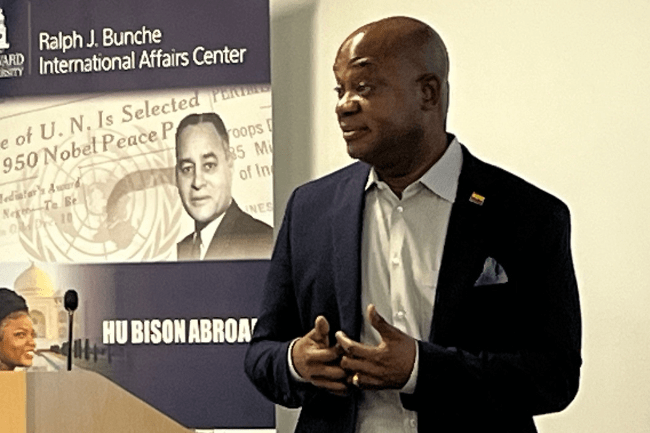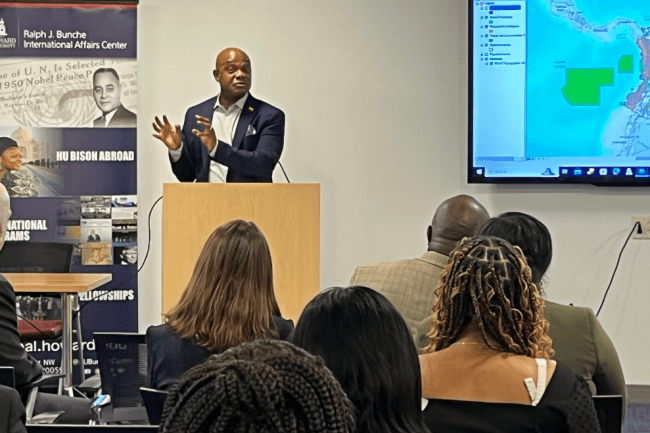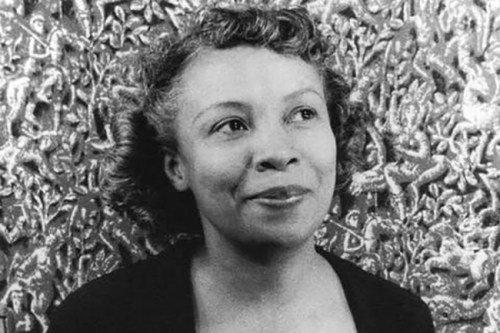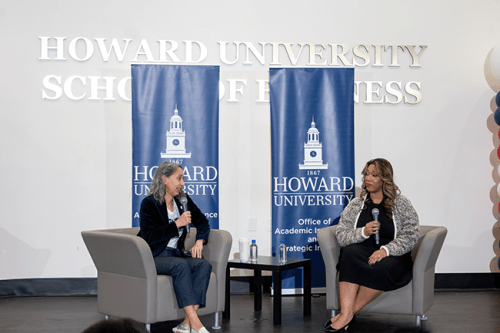Howard University continued its intensive engagement in international affairs by welcoming His Excellency Luis Gilberto Murillo, Colombia’s foreign minister, as the featured speaker for the launch of the Ralph J. Bunche International Affairs Center’s annual series, “Sustainability: From the Mecca to the World.” Murillo has served his country in numerous roles at the local and national levels, including ambassador to the United States. He was invited to explore the role history, politics, and race have played in the efforts to make Colombia, and Latin America broadly, more environmentally sustainable.
Murillo’s relationship with Howard is not new. After becoming the governor of the state of Choco in Colombia at age 31, he established a series of groundbreaking reforms focused on environment and economic development. After leaving office, he was an outspoken advocate on behalf of freedom and democracy and was subsequently kidnapped by an armed group who threatened him with violence. He was granted asylum in the United States and spent his time here connecting with other advocates. Many of his most important connections were with Howard University students and faculty, with whom he discussed global affairs, foreign policy, and the state of the African diaspora.
Murillo used his most recent visit to Howard to speak about the impact of racial and ethnic diversity around the world. He reflected on the influence people of color have had in the fight for equity and freedom in the Western Hemisphere, noting that Blacks have often been at the vanguard. He pointed out that a revolt by enslaved Africans in Haiti against the French led to the establishment of the first independent state in the Caribbean. Haiti was also the first country in the Americas to abolish slavery, a precedent followed by Colombia decades before the Civil War in the United States.
They used to fight together, because they had a vision of an inclusionary nation with freedom for all.
Murillo argued that in many cases, the fight for freedom has been an interracial endeavor.
“They used to fight together, because they had a vision of an inclusionary nation with freedom for all,” he said.
The minister also spoke about the need for diversity in government so that it can be truly representative. Colombia is considered one of the world’s most diverse countries; its population of almost 50 million is made up of more than 80 distinct ethnic groups who speak roughly 70 languages. Colombians of African descent are said to comprise roughly 10-15% of that population, although issues with accurate counting have been acknowledged and many experts, including Murillo, believe that number is much closer to 30-40%. In 2022, Francia Elena Márquez Mina became the nation’s first Black vice president as part of the administration of President Gustavo Petro, and she appointed Murillo to be the country’s first Black ambassador to the United States.

Murillo also used his talk to highlight the disparities affecting many Black communities in Colombia. As is the case in many countries around the world, many of these communities have disproportionately high poverty rates and severe inequities in economic opportunity, employment, access to health care, and infrastructure investment. He spoke about government outreach into those areas and efforts to hear directly from residents and be responsive to their unique needs.
Colombia is preparing to take the international stage as host of the United Nations Conference of the Parties to the Convention on Biological Diversity (COP 16) in October 2024. The convention, an agreement between nations, was originally signed by 193 nations and had three objectives: the conservation of biological diversity, the sustainable use of its components and the fair, and equitable sharing of the benefits arising out of the utilization of genetic resources and related technologies, including access, rights, and funding.
In addition to Murillo’s roles in foreign policy, he has served as Colombia’s Minister of Environment and Sustainable Development in a previous administration. Murillo’s experience is extremely relevant to the conversations which will occur on how the world can sustainably balance the protection of the natural ecosystems which are home to the various species of life with the realities of human development and progress.
The Howard University Ralph J. Bunche International Affairs Center integrates global perspectives into the HU experience, promotes education abroad, facilitates deeper scholarship on global issues, supports cross-cultural dialogue and respect for cultural diversity, and prepares leaders who can find solutions to global problems. Learn more here.





